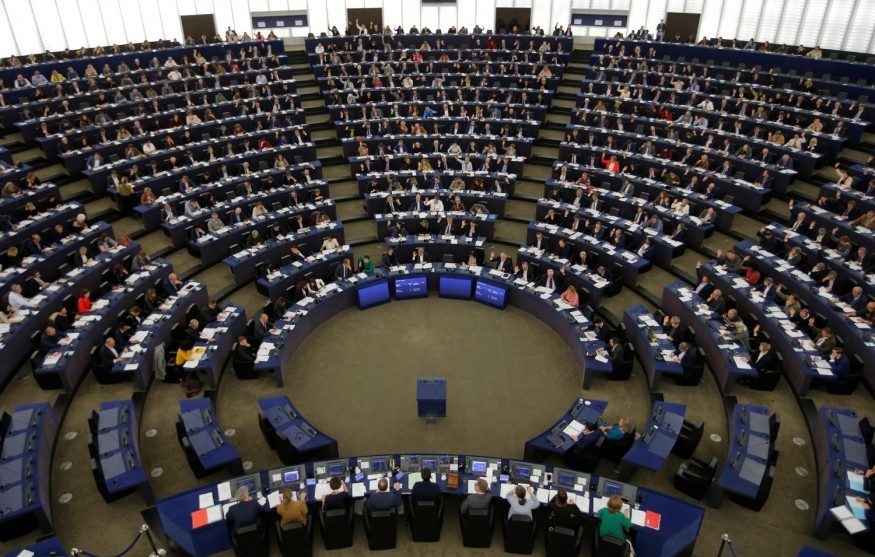
Members of the European Union has declared a global "climate, environmental emergency" as it urged all European countries to invest in net-zero greenhouse gas emissions by 2050.
The vote came as scientists warned that the world might have already crossed a series of climate tipping points, leading in "a state of planetary emergency."
The vote also pressured on Ursula von der Leyen, the incoming president of the European Commission, who recently declared that the EU would lead the fight against "the existential threat" of the climate crisis.
Members of the European Parliament (MEPs) across the political spectrum warned against making symbolic gestures athough the declaration passed with a comfortable majority - with 429 votes in favor, 225 votes against and 19 abstentions.
Environmentalists said satisfactory actions did not back the announcement. "Our house is on fire. The European parliament has [witnessed] the [flame], but [the situation is] not enough to stand by and watch," Greenpeace's EU climate policy adviser, Sebastian Mang said shortly before the vote.
MEPs backed a resolution in a separate vote on Thursday, stating that the current EU climate targets are "not in line" with the 2015 Paris climate agreement. The Paris agreement demands to keep global warming "well below" 2 degrees Celcius above pre-industrial levels, but aiming to cap temperature rises at 1.5 degrees Celcius.
MEPs backed a stricter point of decreasing greenhouse gas emissions by 55 percent by 2030, an improvement on the current 40 percent target. However, Green politicians and campaigners derided the move as "inadequate."
"Europe is the first continent to declare climate and environmental emergency is a [clear] message sent to citizens and the rest of the world," said Pascal Canfin, the French liberal MEP who drafted the climate emergency resolution.
MEPs from the European parliament's largest group, the center-right European People's party, were divided over the "climate emergency" warning. The assembly wanted to declare "a climate urgency" instead, because the German word emergency, der Notstand, left some members uneasy due to its associations with the Nazi-era law.
EU member states have until the end of the year to submit plans to Brussels outlining their energy transformation over the next decade to meet the goal of cut greenhouse gas emissions by 40 percent by 2030 versus 1990 levels.
BREAKING: The European Parliament has just voted overwhelmingly in favour of a motion declaring a #ClimateEmergency pic.twitter.com/RKqmgBVPy6 — Grace O'Sullivan MEP (@GraceOSllvn) November 28, 2019
The ambition is still insufficient, says Climate Action Network
There was an "insufficient ambition" to switch to renewables, according to the assessment of the draft plans by the Climate Action Network. It suggested the EU members create energy savings and phase out coal.
The report underscored that there had been an improvement since countries submitted their original plans in 2018. Slovakia, Hungary, and Greece have agreed to phase out coal in their power sectors by 2030. Hence, the coal would be focused in Bulgaria, Czech Republic, Germany, Polan, and Romania by 2030.
The research highlighted that climate activists in Hungary and Romania had "no access to official information" about changes in the government's climate and energy plans.
Wendel Trio, the director of Climate Action Network Europe, said member states have one month left to improve their plans. "The plans would weigh a lot in EU's ability to act on climate change in the next decade," Trio said.
He added the EU members must create clear pathways that would allow the block to improve its climate target, shift away from fossil fuels, and speed up the pace towards fully energy efficient and renewables-based economies.
© 2026 NatureWorldNews.com All rights reserved. Do not reproduce without permission.





